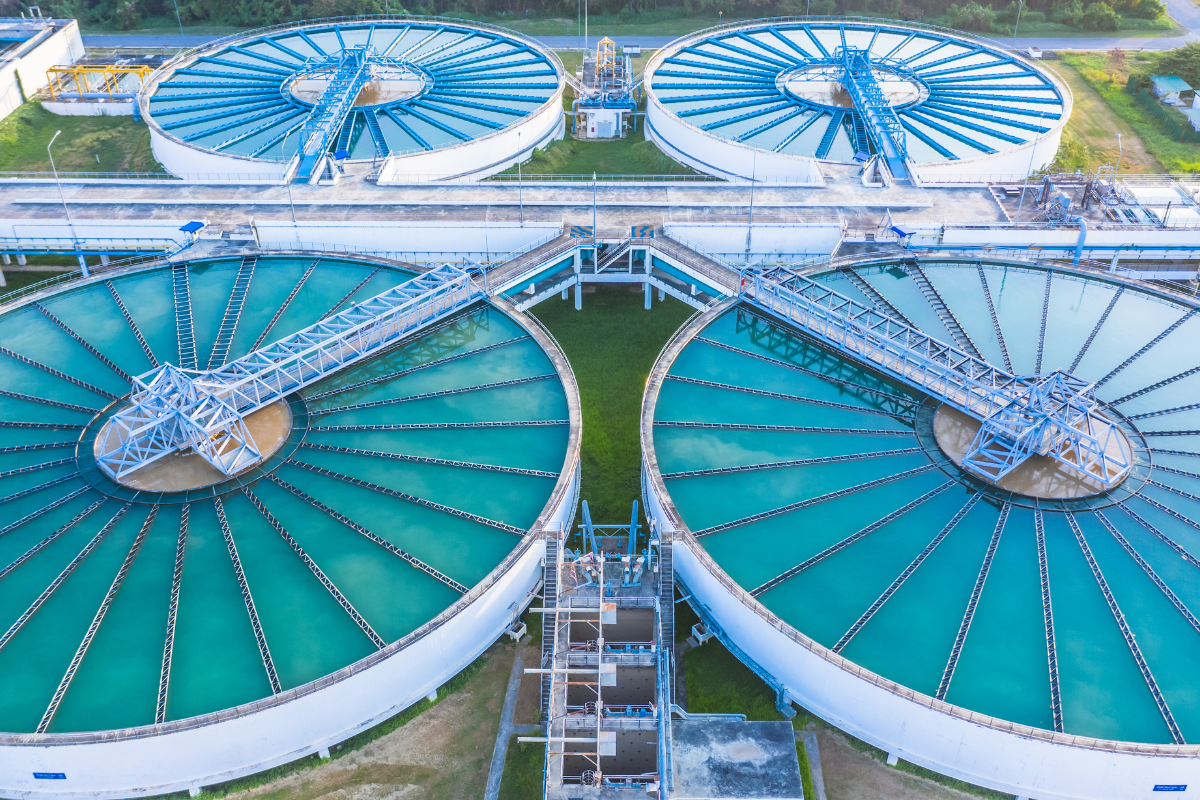Japanese companies in the Northern Netherlands solve puzzles through challenged-based innovation
Can you make circular packaging from your own waste product? And how can you roast coffee using less natural gas? Kikkoman in Sappemeer and UCC in Bolsward could use some help finding the answer. So they put their question to the world in the form of the TopDutch Innovation Challenge.
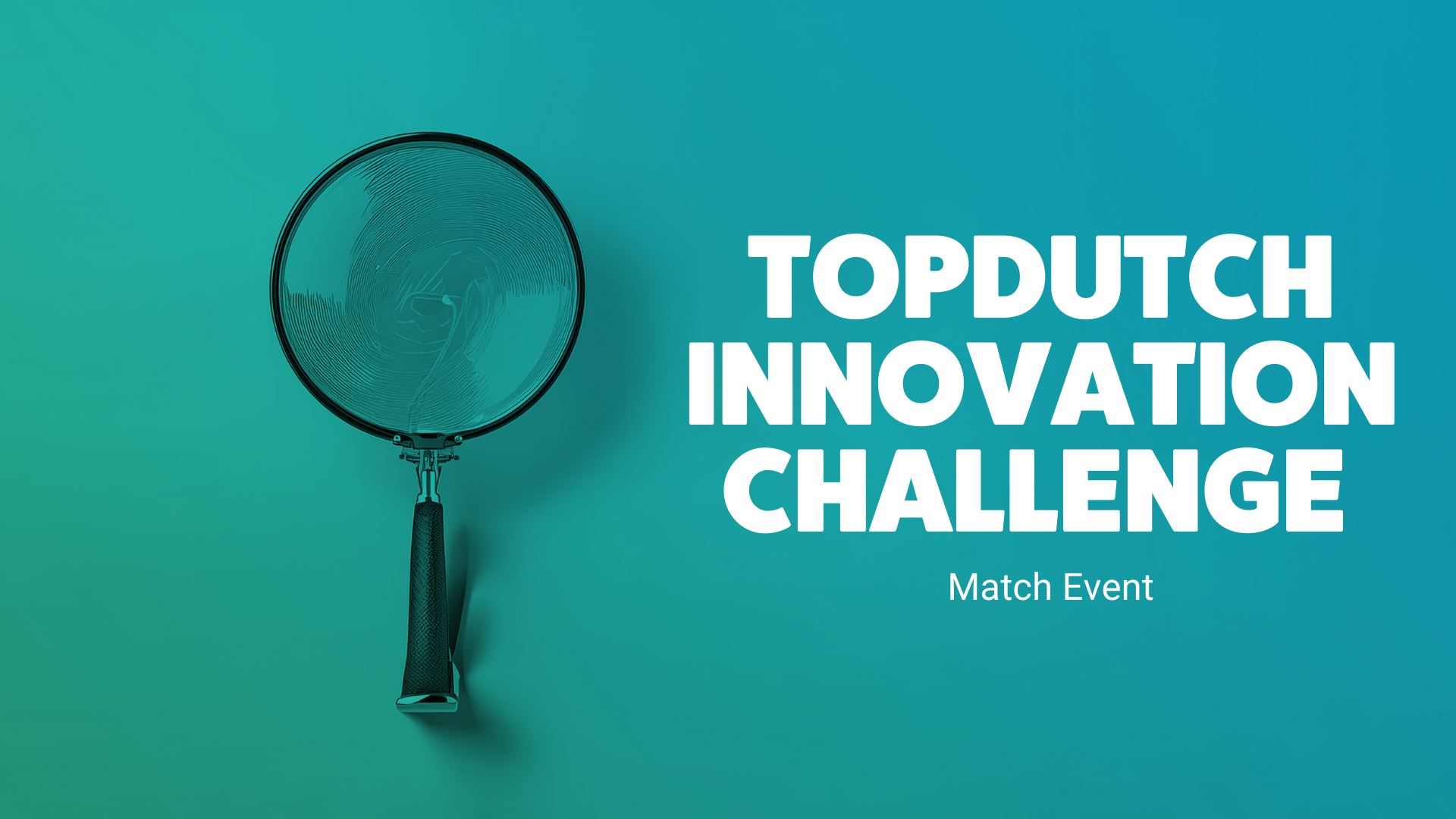
The TopDutch Innovation Challenge is an exercise in so-called ‘challenged-based innovation’. The idea is to take a large company with a vision for an innovation that would make their processes more sustainable, and match them with a party who has the expertise to realize it.
Once a match is made, the two parties agree to bring their heads together and collaborate for an extended period on a solution to this sustainability challenge. The NOM adds its expertise in order to scout for potential solution providers, provide access to its network, and offer the support of its business developers and project managers. The three parties together bring all the ingredients needed to develop exciting new sustainable innovations, right here in the Northern Netherlands.
This round of the TopDutch Innovation Challenge launched in the summer of 2024. Two Japanese companies with a location in the Northern Netherlands – soy sauce manufacturers Kikkoman and coffee company UCC – shared their challenges through TopDutch’s channels and the NOM’s network. Potential solutions came in from around the world and were whittled down to a short-list of 2-3 solution providers per challenge. Next, the short-listed firms pitched their plan to create a sustainable solution at a Match Event in the Northern Netherlands. Here, the problem solvers Kikkoman and UCC selected to work with was finally also announced. So what are these challenges and who are the teams that are going to work on them?
Kikkoman and Buyo Plastics
Soy cake. That's what the residual product from soy sauce production is called. It’s perfectly usable as a basis for animal feed. But what about using it to package Kikkoman's own soy sauce? That would make the by-product more valuable and save on the use of plastic for bottles. It would also fit in perfectly with the multinational's commitment to operate as circularly and sustainably as possible. But how?
Vietnam-based company Buyo has the answer. Daniel Verlinde, European Manager of Buyo Plastics, convinced the management of Kikkoman’s manufacturing operation in Europe with a short pitch at the match event, in which he explained that the residues from soy sauce production are an excellent basis for biocomposites. And from that, any potential materials for the packages to be used for their soy sauce products can be made. Verlinde even brought a bottle made from a different biowaste with the Kikkoman logo on, as a visualisation of what the end-product of their collaboration could be.
'This is a trial, I printed out the label myself. But you can see it can be done.' His practical example and hands-on approach gave Kikkoman the confidence to choose Buyo over the other contestants, Greencovery and TripleW.
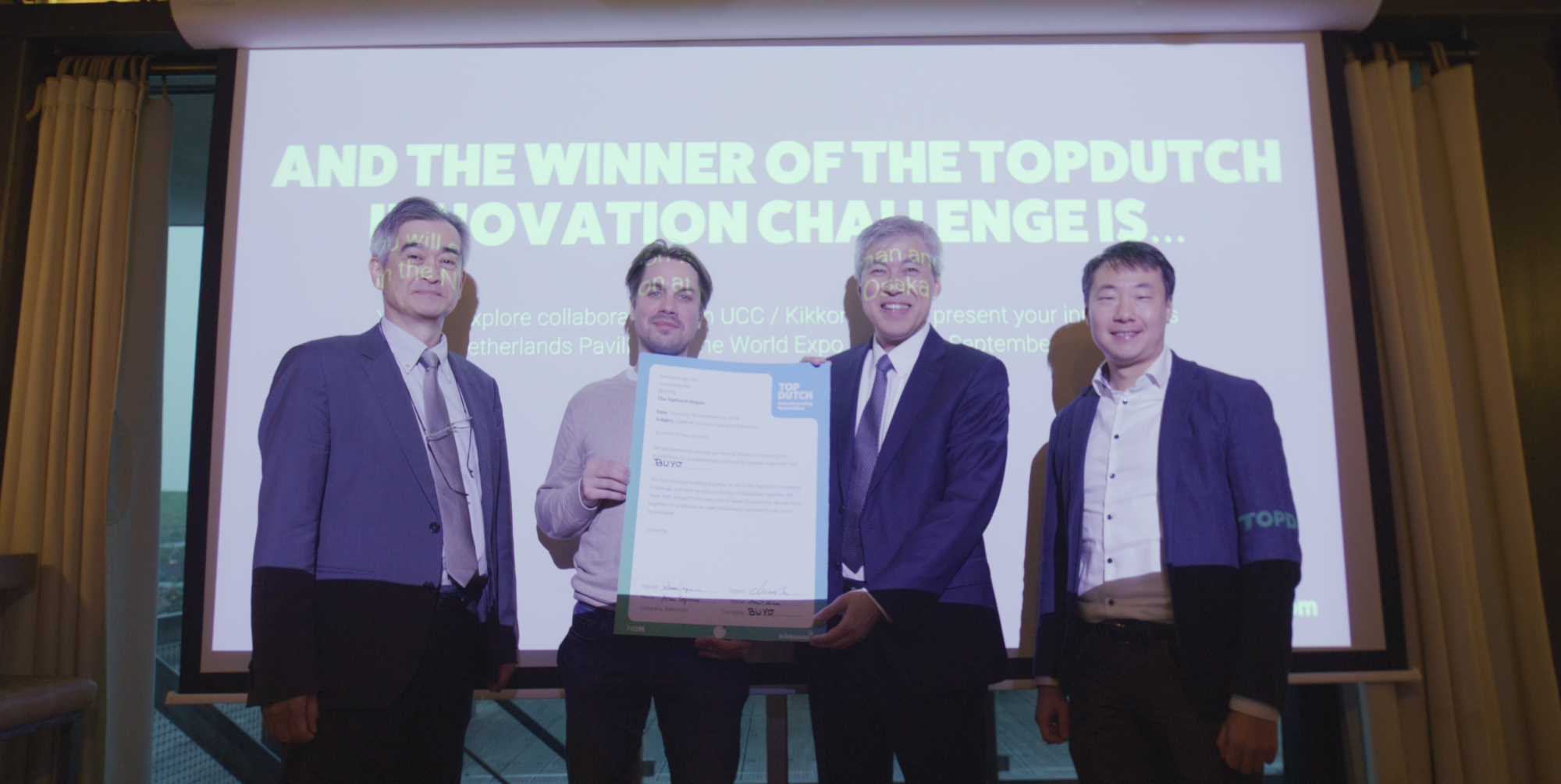
UNC and DNV/Summit
In addition to Kikkoman and Buyo, coffee giant UCC, with its facility in Bolsward, also found a match with a solution presented in a joint pitch by the Norweigen multinational DNV, who also have a location in the Northern Netherlands, and the Eelde-based Summit Engineering.
UCC wants to use less natural gas when roasting coffee beans and is considering hydrogen as an alternative. DNV knows how to make this happen, says Johan Knijp, who heads DNV's technology centre in Groningen. Together with Summit Engineering, he has come up with a solution. ‘We think that UCC is best served by a flexible concept, where less gas and more hydrogen can be used step by step.’ For UCC’s management, this proposal was preferable over the interesting pitch from Equans, that came up with a hybrid system with hydrogen and electricity.
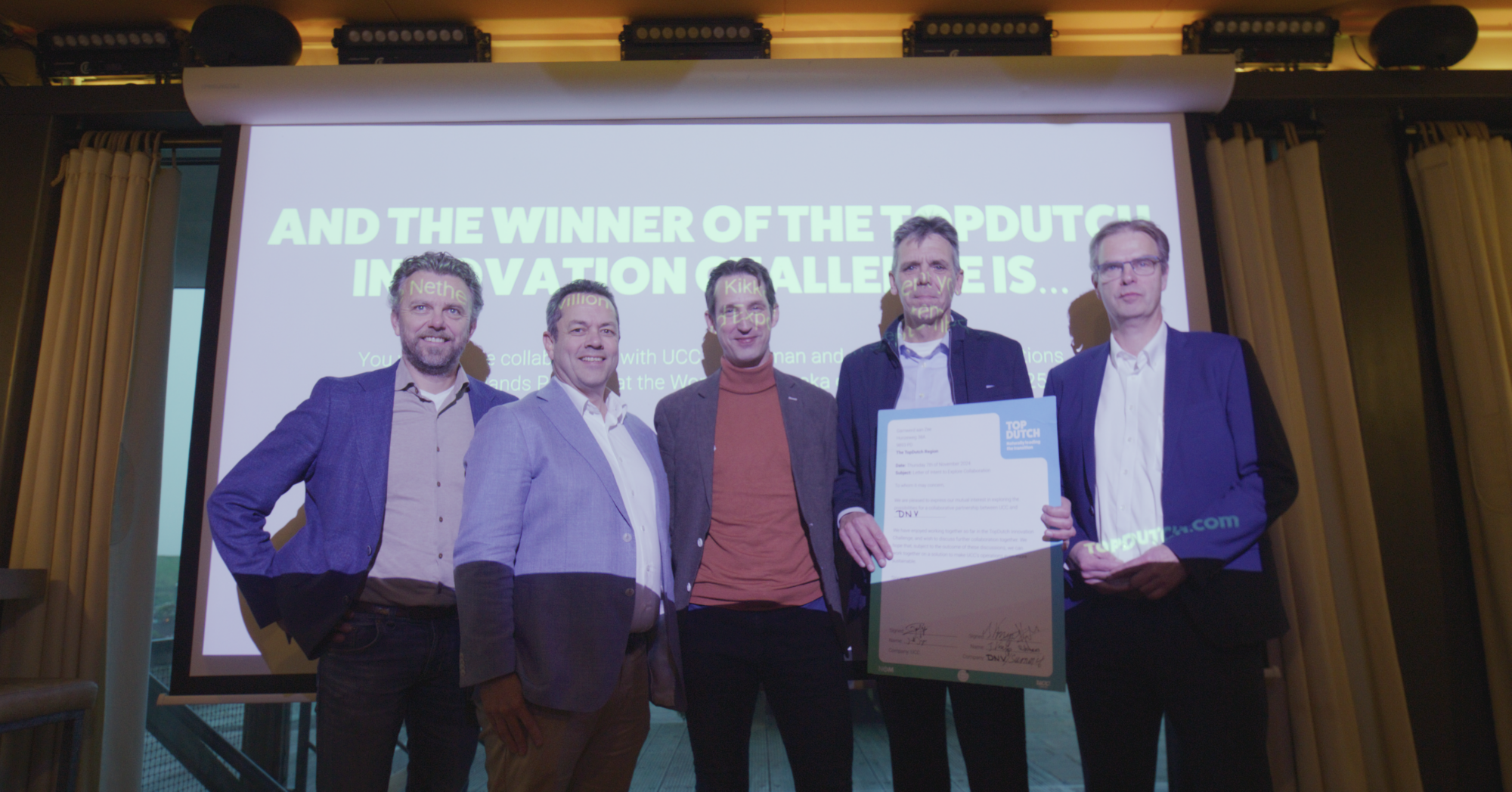
To the world stage
During the match event Kikkoman and Buyo and UCC and DNV/Summit signed a symbolic letter of intent, pledging to explore the possibilities for collaboration further in a formal process over the coming months. Hopefully, this will form the basis of a far-reaching cooperation, and since then, the parties have been in regular conversation. In any case, at the invitation of the NOM, the two challenge holders and solution providers will present their progress, a year after the launch of the Innovation Challenge, at the World Expo in Japan.
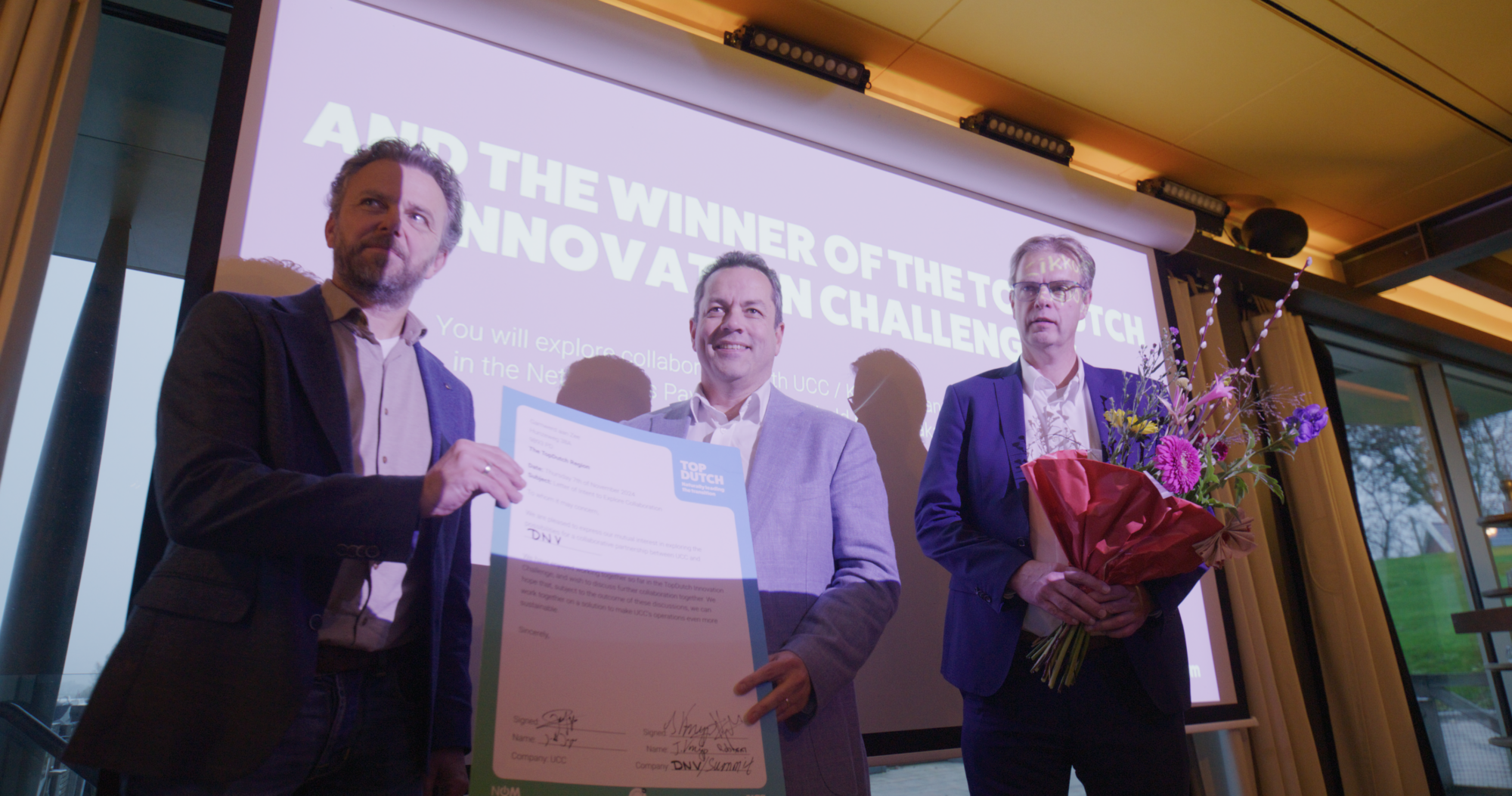
The World Expo will take place in Osaka beginning this April. More than one hundred and fifty countries will be exhibiting their best innovations there, including the Netherlands. Under the title ‘Common Ground’, Japanese-Dutch cooperations will be given a stage. This was the reason for TopDutch to focus this Innovation Challenge on Japanese companies in the Northern Netherlands. ‘The companies participating in this challenge will show their progress in Osaka in the Dutch pavilion,’ explains Fleur Mulder. She is the Program Manager for this and other innovation challenges.
Renewed mindsets
Kikkoman and Buyo, UCC and DNV/Summit. They could be cooperations that lead to new innovations. Remco van Leeuwen knows all about it. A year ago, as project manager of New Born Rubber, he won a similar pitch with another Japanese company, Teijin. 'We are still working together. You can see there are opportunities, in our case opportunities to make conveyor belts in mines more sustainable. By exploring this together with an open mind, we have made considerable strides.'
BASF’s Ben Freyee can only agree. The Swiss company, based in Heerenveen, took part in the Sustainable Industry Challenge a year ago. They were looking for ways to reuse production residual waste and partnered with two startups to find answers, Aquacycl and Treatech. Freyee: ‘It was exciting to start thinking very differently. But our mindset has really changed and our focus is permanently on innovation. That's what a challenge like this does.'
Do you have a problem you think could be solved by challenge-based innovation? After the successes of the TopDutch Innovation Challenge and the Sustainable Industry Challenge, the NOM is furthering its work on challenge-based innovation with a dedicated organization, ChallengeBase, in cooperation with Founded in the North. They are open to any Northern company or (semi-)government organization with an innovation question in the field of sustainability, circularity, digitalization or health. They will then scout for solutions worldwide, and support the innovation to be realized in the Northern Netherlands.



